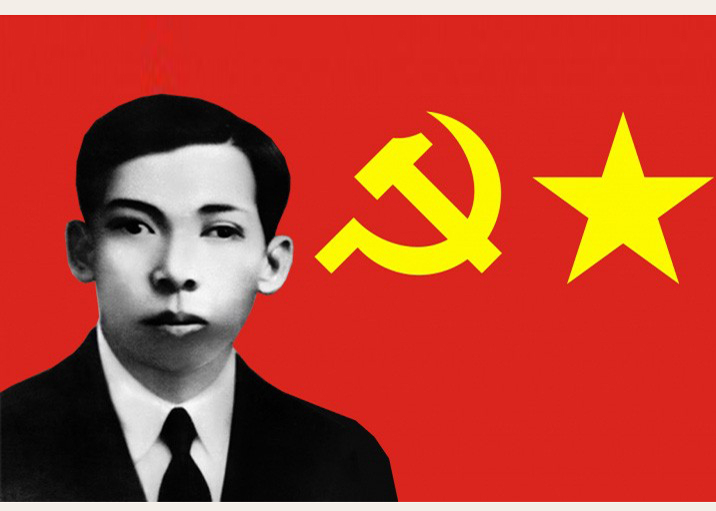Tran Phu, excellent mentee of Nguyen Ai Quoc
BHG - Tran Phu lost his parents when he was young, so he had a sense of independence early. He graduated from the French-Vietnamese Dong Ba School at the age of 14. He passed the Thanh Chung exam at the age of 18 and was appointed as a teacher at Cao Xuan Duc School in Vinh (Nghe An). During this time, Tran Phu was enthusiastically active in the patriotic movement. He was one of the founders of the Hoi Phuc Viet (Phuc Viet Association) on July 14, 1925.
 |
Knowing that Nguyen Ai Quoc came to Guangzhou (China) and founded the Hoi Viet Nam Cach Mang Thanh Nien (Vietnam Revolutionary Youth Association) in June 1925, Tran Phu went to China to meet Nguyen Ai Quoc in mid-1926. In Guangzhou, after meeting Nguyen Ai Quoc, Tran Phu was selected to join a training class of young patriotic intellectuals, the core of the Vietnamese revolution, directly trained by Nguyen Ai Quoc. In this training class, Nguyen Ai Quoc taught Tran Phu basic knowledge about Marxism-Leninism, the international situation, the domestic situation, and the revolutionary party. After the conclusion of the training class, Nguyen Ai Quoc sent Tran Phu to Vietnam to participate in revolutionary activities. He actively propagated revolutionary views and guidelines and mobilised more young people to join the association. Through practice, Tran Phu realised the necessity of merging Hoi Phuc Viet with the Hoi Viet Nam Cach Mang Thanh Nien, so he went to Guangzhou to ask for instructions from Nguyen Ai Quoc on this matter.
Agreeing with Tran Phu’s proposal and recognising his qualities, in early 1927 Nguyen Ai Quoc sent him to the Soviet Union to study at the Communist University of the Toilers of the East. After graduating from the course in October 2029, Tran Phu returned to Hong Kong (China) to meet Nguyen Ai Quoc to discuss the coordination of operations. He and Nguyen Ai Quoc thoroughly discussed the situation of the Indochina revolution and the upcoming work of the Vietnamese revolution, including the establishment of the Communist Party of Vietnam and the Party’s Platform.
After the Communist Party of Vietnam was established on February 3, 1930, Nguyen Ai Quoc sent Tran Phu to work domestically to gain experience and draft a “Political Thesis”. In early July 1930, Tran Phu was added to the Provisional Party Committee of the Tonkin and was elected Secretary to replace Trinh DinhCuu. In a small room in the basement of house No.7, Jean Soler Street, now No.90 ThoNhuom Street, Hanoi, Tran Phu wrote the “Political Thesis”.
At the first Conference of the Party Central Committee held in Hong Kong from October 14 to 31, 1930, according to the recommendation of Nguyen Ai Quoc, Tran Phu was elected General Secretary of the Party. At this Conference, the Party Central Committee approved the Party Political Thesis drafted by Tran Phu. The document inherits, develops, and has high consistency with the “Brief Political Platform” and “Brief Strategy” proposed by Nguyen Ai Quoc at the conference on the establishment of the Communist Party of Vietnam.
Tran Phu was the Party General Secretary for less than a year (from October 1930 to September 1931), but he shined like a shooting star because of his talent and bravery, and the guidance of his eminent teacher Nguyen Ai Quoc. Intelligent student Tran Phu always strived to follow Nguyen Ai Quoc, aiming to achieve the harmony between the generality of the international communist movement and the particularity of the Vietnamese revolution. As a result, on April 11, 1931, the Executive Committee of the Communist International decided to recognise the Indochina Communist Party as an independent party cell of the Communist International.
The great loss for the Vietnamese revolution amid difficulties after the Xo Viet - Nghe Tinh movement was that General Secretary Tran Phu was arrested, brutally tortured by the enemy, and passed away at Cho Quan Hospital.
DANG DUY BAU





READER COMMENTS